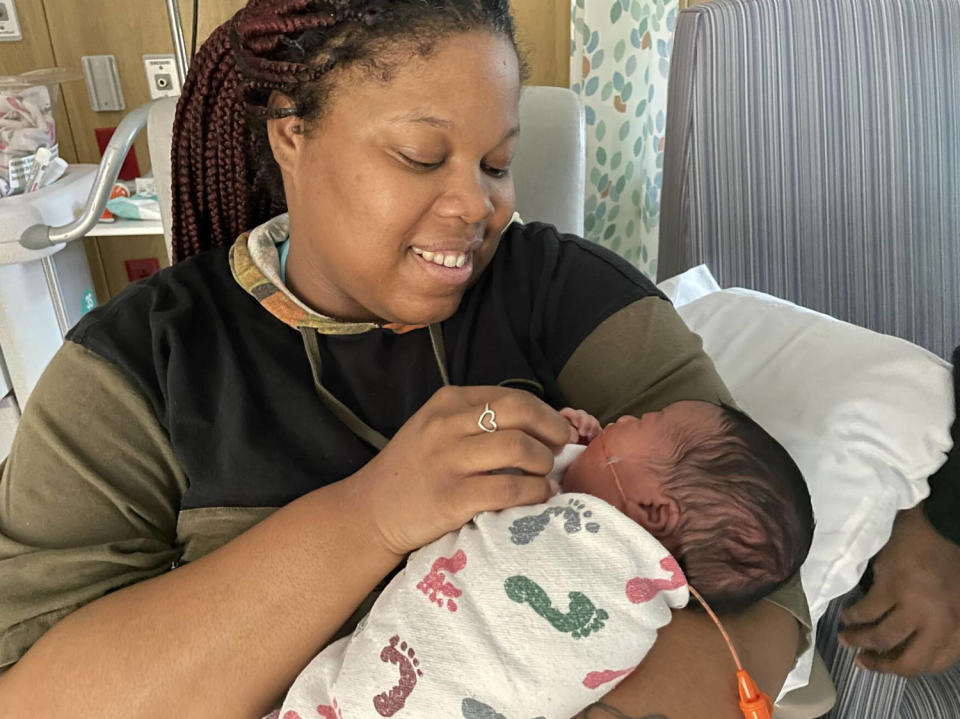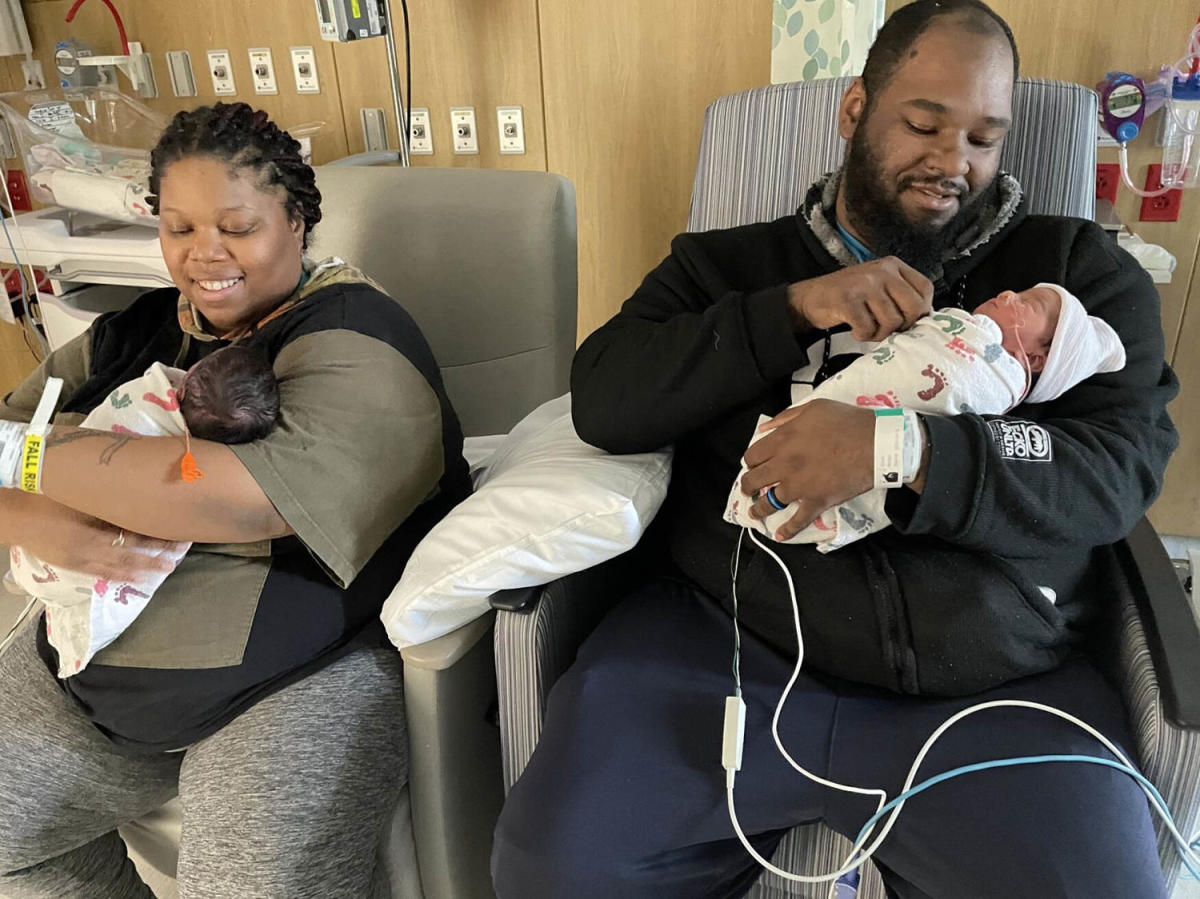“I was like, ‘Of course I am,’” Tutt, who has a twin brother, tells TODAY.com. “My mom had two sets of twins. My grandma had a set of twins, my great-grandma had a set of twins.”
However, Tutt was surprised to find herself surrounded by twins in the delivery room at Cone Health Women’s & Children’s Center in Greensboro, North Carolina.
“There were a lot of people in there and they were all saying, ‘I’m a twin, also!” Tutt says.

According to a hospital news release, three medical professionals in the room, including the doctor who delivered Tutt’s babies, are twins themselves.
“It was a cool experience,” Tutt says. “It felt lucky.”
Tutt’s sons Kendrick and Cairo, were born on March 3, and are now 3-weeks-old. She and her husband, Elliott McNeil, are also parents of 13-month-old twin boys Elliott and Zion, and Karlie, 6.
“When I was growing up, I always told my mom that I wanted to be just like her,” Tutt says. “Everything that she would do, I would say I was gonna do also. And look! Now I have two sets of twins just like her.”
Twin births account for 3% of all live births, according to Dr. Michael Cackovic associate of professor of maternal fetal medicine at The Ohio State University.
Cackovic previously told TODAY.com that some groups have a higher prevalence of twins. He pointed to Igbo-Ora, Nigeria, which has one of the highest rates of twin births in the world.
“About 50 in a thousand are twin births,” Cackovic said. “Their makeup is that they super ovulate. They ovulate more than one egg.”
Other risk factors for twin pregnancies include use of fertility treatments, older maternal age, higher BMI and having a family history of twins on the mother’s side, according to Dr. Thomas Molinaro, a reproductive endocrinologist at RMA of New Jersey.
“While it seems unlikely to have two sets of twins with a probability of about 1 per 10,000, it may be higher in women with a strong family history,” Molinaro previously told TODAY.com.
And Tutt definitely has that!
This article was originally published on TODAY.com
